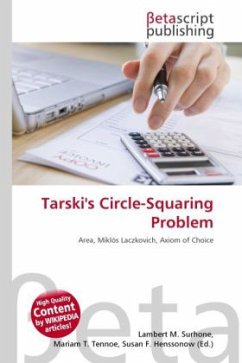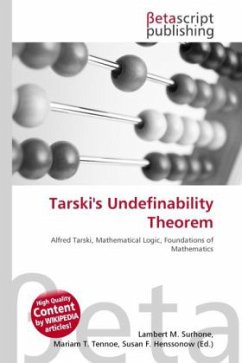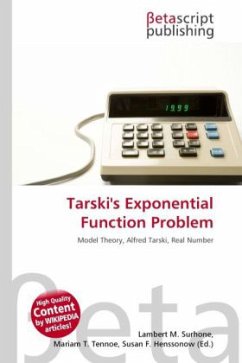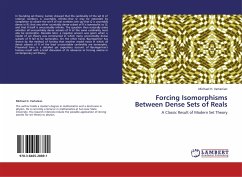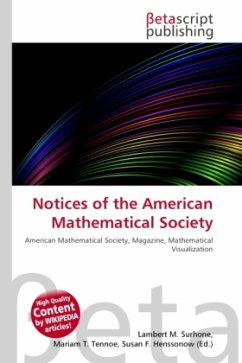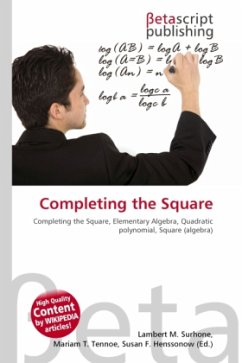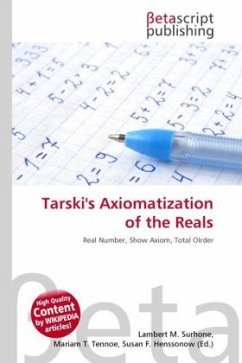
Tarski's Axiomatization of the Reals
Versandfertig in 6-10 Tagen
22,99 €
inkl. MwSt.

PAYBACK Punkte
11 °P sammeln!
High Quality Content by WIKIPEDIA articles! In 1936, Alfred Tarski set out an axiomatization of the real numbers and their arithmetic, consisting of only the 8 axioms shown below and a mere four primitive notions: the set of reals denoted R, a binary total order over R, denoted by infix , a binary operation of addition over R, denoted by infix +, and the constant 1. The literature occasionally mentions this axiomatization but never goes into detail, notwithstanding its economy and elegant metamathematical properties. This axiomatization appears little known, possibly because of its second-orde...
High Quality Content by WIKIPEDIA articles! In 1936, Alfred Tarski set out an axiomatization of the real numbers and their arithmetic, consisting of only the 8 axioms shown below and a mere four primitive notions: the set of reals denoted R, a binary total order over R, denoted by infix , a binary operation of addition over R, denoted by infix +, and the constant 1. The literature occasionally mentions this axiomatization but never goes into detail, notwithstanding its economy and elegant metamathematical properties. This axiomatization appears little known, possibly because of its second-order nature. Tarski's axiomatization can be seen as a version of the more usual definition of real numbers as the unique Dedekind-complete ordered field; it is however made much more concise by using unorthodox variants of standard algebraic axioms and other subtle tricks (see e.g. axioms 4 and 5, which combine together the usual four axioms of Abelian groups).



